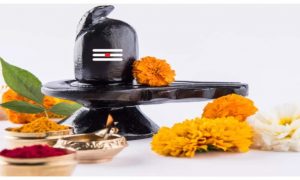When hair is exposed to rain, the increased moisture disrupts the natural hydrogen bonds within hair strands, leading to loss of definition, frizz and overall lack of manageability.
Monsoon season is upon us while we love the rain pouring down and giving us a much-needed relief from the sweltering heat, our hair doesn’t like rain that much. Why Monsoon and hair is not a good story? When hair is exposed to rain, the increased moisture disrupts the natural hydrogen bonds within hair strands, leading to loss of definition, frizz and overall lack of manageability. Excessive moisture can also weaken hair, making it more prone to breakage and split ends. The warm, humid environment of the monsoon creates a breeding ground for fungus. This can lead to conditions like dandruff and scalp irritation, causing itching and discomfort. In some cases, the increased humidity can trigger the scalp to produce more oil, leading to a greasy appearance and potentially clogged hair follicles.
However, with a few strategic adjustments to the hair care routine and incorporating effective natural products, you can maintain healthy, beautiful hair throughout this period.
Read More: Hariyali Teej 2024 Wishes: 15 Messages, Quotes, Greetings To Share With Your Loved Ones
Protective Hairstyles
- The first line of defence against monsoon woes lies in minimizing hair’s contact with the elements. Opt for stylish updos such as buns, ponytails or braids. These hairstyles not only prevent excessive tangling but also reduce exposure to rainwater and humidity.
- Do away with tight braiding, while seemingly beneficial for managing hair, can cause unnecessary stress, particularly when wet. Opt for looser braids that allow for breathability while maintaining manageability.
Washing Wisely: Combating the Elements
- Rethinking Distilled Water: While distilled water removes mineral build-up, it can also strip away natural oils from the scalp, potentially leading to dryness. Consider using a gentle, sulphate-free shampoo with a blend of Rosemary and Tea
- Tree that effectively cleanses without being overly harsh.
- The Power of Pre-poo: A pre-poo oil massage can be a valuable addition to your routine. Applying natural oil such as a blend of Rosemary and Lavender, to the hair before shampooing creates a protective layer, minimizing damage from harsh weather and cleansing agents.
Natural Allies: Hair care Solutions
- Blend of Rosemary and Lavender in a Hair Oil: This nourishing oil, infused with Rosemary, Lavender and Amla which promotes healthy hair growth, nourishes the scalp and adds a touch of shine.
- Rosemary Tea Tree Shampoo: This potent shampoo combines the benefits of Rosemary, known to stimulate hair growth and Tea Tree Oil, a natural antifungal and antibacterial agent that combats dandruff and scalp irritation, common concerns during the monsoon.
- Tea Tree Essential Oil (Spot Treatment): Tea Tree Oil, known for its anti-inflammatory and antiseptic properties, can be used as a spot treatment for itchy or irritated scalp areas. However, it’s crucial to dilute it with a carrier oil like coconut or jojoba before application (2-3 drops of Tea Tree Oil per teaspoon of carrier oil).
Taming the Frizz: Moisture Management
- Argan Oil for Frizz Control: Argan Oil, a natural source of Vitamin E and essential fatty acids, helps lock in moisture, leaving hair soft, manageable and less prone to frizz. Apply a small amount to damp hair, focusing on the mid-lengths and ends.
Read More: Weight Loss Vs Fat Loss: 5 Diet Tips To Reduce Kilos And Gain Muscles Simultaneously
Bonus Tip: Deep Conditioning is Essential
- Treat your hair to a deep conditioning treatment once a week with a conditioner containing Rosemary and Argan. This helps replenish lost moisture and adds an extra protection against environmental damage. You can use a store-bought deep conditioner or create your own with natural ingredients like avocado, honey and yogurt.
Additional Monsoon Hair Care Considerations
- Limit Heat Styling: Minimize the use of heat styling tools like straighteners and curling irons, as they can further dry out the hair. The monsoon season already adds moisture to the air, so heat styling becomes less necessary.
- Embrace a Balanced Diet: Nourish your hair from within! Ensure the diet includes foods rich in protein, vitamins and minerals to promote healthy hair growth.
- Avoid Harsh Chemicals: Steer clear of hair products containing harsh chemicals like sulphates and parabens, which can strip away natural oils and exacerbate dryness.
- Gently Pat Dry: Skip the rough towel drying. Instead, gently pat your hair with a soft microfiber towel to minimize frizz and breakage.
By implementing these strategies and incorporating natural hair care products, you can effectively combat the challenges of the monsoon season and maintain healthy, beautiful hair throughout the rainy period.
(Inputs by Natasha Tuli, Co Founder & , Soulflower)





































